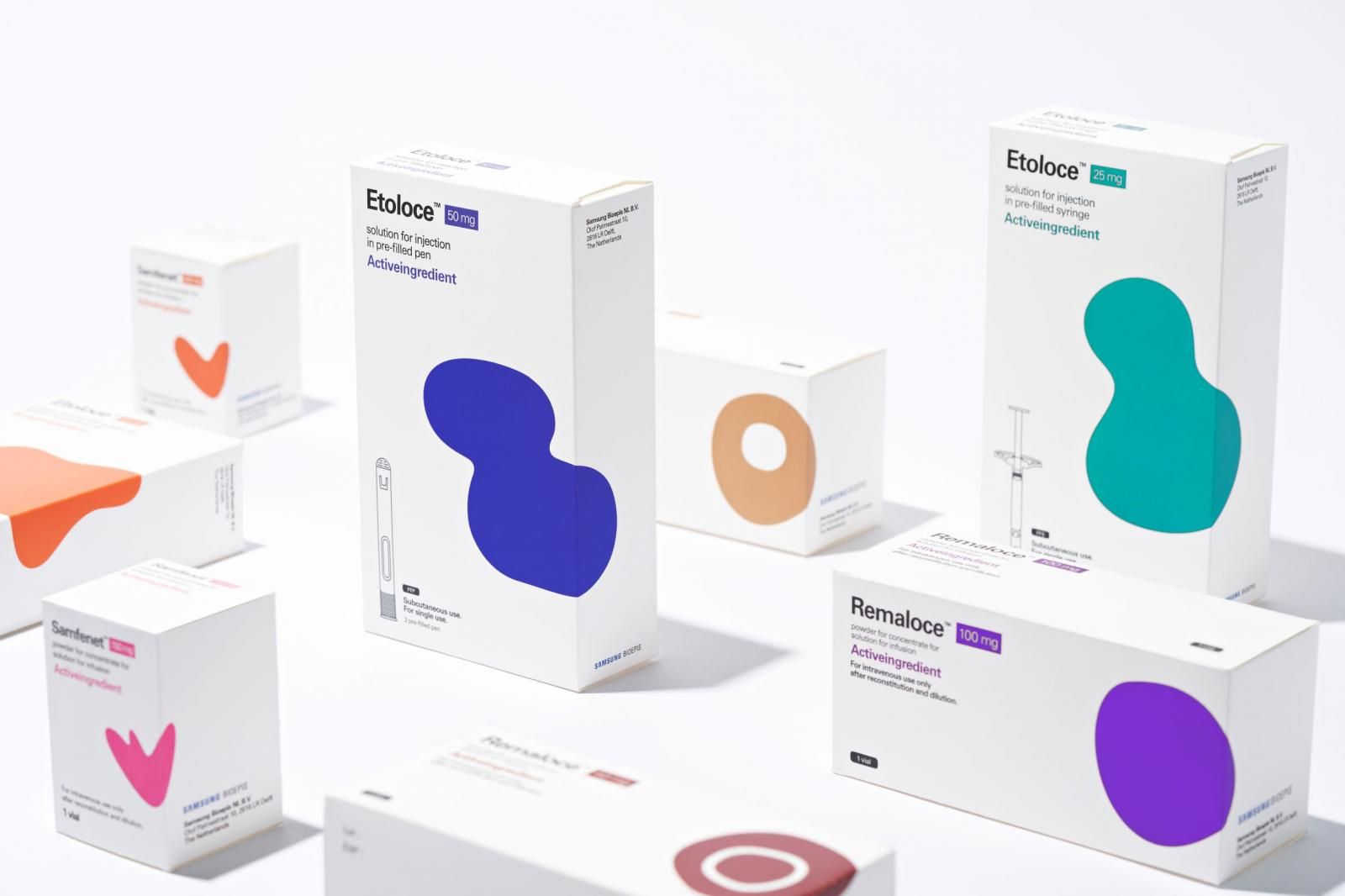- Bone Health
- Immunology
- Hematology
- Respiratory
- Dermatology
- Diabetes
- Gastroenterology
- Neurology
- Oncology
- Ophthalmology
- Rare Disease
- Rheumatology
Samsung Bioepis Appeals to Patients Through Package Design
In an award-winning attempt to get closer to patients, Samsung Bioepis has replaced harsh typography with white backgrounds and gentle shapes on its new biosimilar packaging.
Can you make a biosimilar package more appealing for a patient? What would you change? Those were the questions that designers at Samsung Bioepis pondered as they sought unifying design elements they could use across their drug portfolio while still enabling patients and doctors to distinguish one product from another.
They appear to have succeeded. The Incheon, Republic of Korea—based company won 2 prestigious Red Dot Design Awards for its soft-yet-engaging product designs that feature basic shapes and soothing colors, such as a purple, fruit-like shape for its infliximab product (Renflexis, Flixabi, Remaloce) and a fusion of green or blue circular shapes for its etanercept biosimilar (Eticovo, Brenzys, Benepali, Etoloce).

Meanwhile, Samsung Bioepis’ trastuzumab contender (Ontruzant, Samfenet) was given a solid, salmon-colored tulip-like shape.
The company called the redesign “Passion for Health: Pure Joy in Life.” It draws from tranquil, organic forms to evoke mental and physical stability in patients who are struggling with their health conditions.
“It was designed with a motive to bring out life and joy for patients with chronic illness,” Samsung Bioepis said. “The focus of the design was ‘process of healing’ by using soft graphics in order to move away from the conventional, rigid design of medicine packaging, which only serves to deliver safety information.”
Samsung Bioepis won the Brand Design & Identity and Packaging Design awards in this year’s Red Dot contest. The company has been part of a wave of biosimilar industry powering up in Republic of Korea, which has enjoyed double-digit growth for the past 5 years.
Newsletter
Where clinical, regulatory, and economic perspectives converge—sign up for Center for Biosimilars® emails to get expert insights on emerging treatment paradigms, biosimilar policy, and real-world outcomes that shape patient care.
